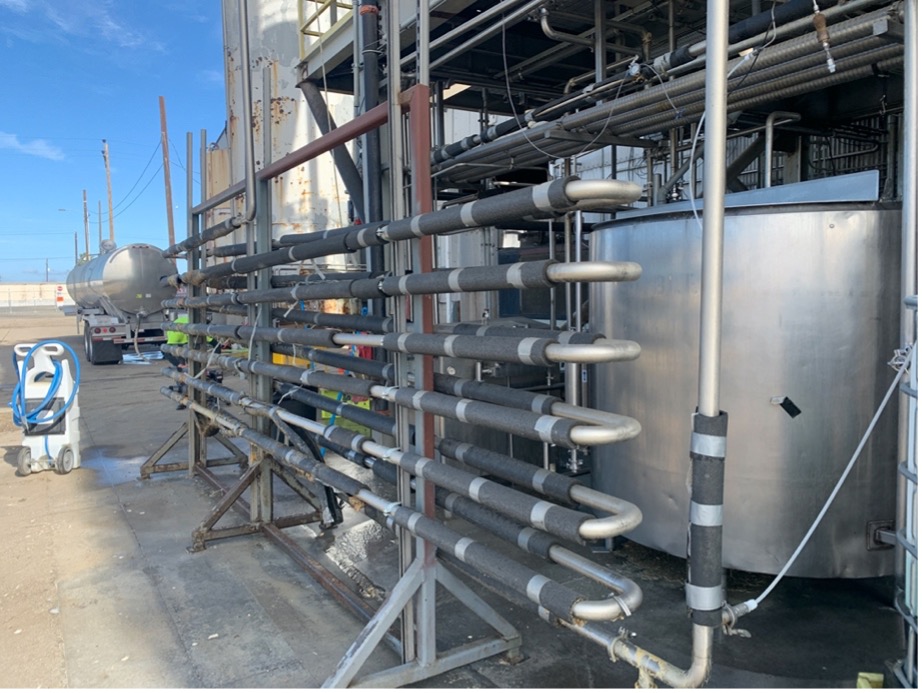Here at our Northern California Certified Machinery and Equipment Appraisal office, the phone’s been ringing off the hook with calls from Sacramento and Yuba City banks and other northern California financial institutions asking for qualified SBA loan appraisals on machinery and equipment for collateralized loans. The recent passage of the Small Business Jobs Act (H.R. 5297) has galvanized the business loan market!
As a CPA, I enjoy creating qualified appraisal reports for banks, credit unions and other financial institutions. When I worked in the Sacramento audit department of international CPA firm KPMG, my focus was banking, insurance, manufacturing, agriculture and distribution; my duties included auditing banks. Consequently, I’ve reviewed thousands of loan files, including machinery and equipment appraisals, and I’m more than a little familiar with what a good loan file looks like: I know what bank auditors are looking for.
Even with this legislation bankers still have to satisfy bank auditors and examiners who have raised the bar for the quality of the loan documentation. Therefore a “one-sheet wonder” appraisal from an appraiser without a recognized designation is wasted money. What a bank needs is a qualified appraisal from a certified / accredited appraiser with knowledge of the equipment being appraised. A qualified USPAP compliant appraisal can be the key that opens the SBA treasure chest.
I recently got a call from a bank that was being audited and had a “one-sheet” appraisal in a loan file. They needed me to come out ASAP and do a qualified equipment appraisal to reassure the auditors and forestall any problems for the bank. Clearly, the first appraisal was not only a waste of money but also created an embarrassment for the bank’s management when they had to call the borrower with the news of the required new appraisal.
As Accredited Senior Appraiser (ASA) with the American Society of Appraisers, I’m always happier to provide a qualified equipment appraisal for a business loan than for a bankruptcy. Note that the ASA designation is often preferred and even required of some SBA loan appraisals.
Just about any small business (and a small business could be making millions of dollars, according the SBA guidelines) could be eligible for these SBA loans put into play by the Jobs Act. I took a quick look at the list of industries on the SBA website: Agriculture, Forestry, Fishing and Hunting; Mining, Quarrying, Oil & Gas Extraction; Construction; Utilities; Manufacturing from pet food to work clothes, including chemicals and printing; Wholesale and Retail Trade; Transportation and Warehousing; Information (a wide and varied field from publishing, movies and music, to telecommunications and data hosting); Finance and Insurance; Professional, Scientific and Technical Services, such as Landscape Architectural, Geophysical Surveying and Mapping, Biotechnological Research & Development … well, you get the idea.
The Jobs Act not only increased federal government guarantees on SBA 7(a) loans through the end of the 2010, but also temporarily waived fees on 7(a) and CDC/504 loans and created a $30 billion lending fund that community banks can access in making loans to small businesses in our service area–the Sacramento Valley, the San Francisco bay area, Redding, Yuba City, Stockton, Auburn, Elk Grove or Grass Valley.
Tony Wilkinson, president and chief executive officer of the National Association of Government Guaranteed Lenders, points out that the combination creates a perfect opportunity for small businesses to get an SBA loan. “This,” he says in the Sacramento Business Journal Article, “is the time to search out an SBA lender.” SBA records show that already in 2010, the top 10 Sacramento area SBA lenders have dispersed over $86 billion in 415 loans! If you don’t have one yet, it’s time to consider whether an SBA loan could help you grow your business.
Jack Young
NorCal Valuation




